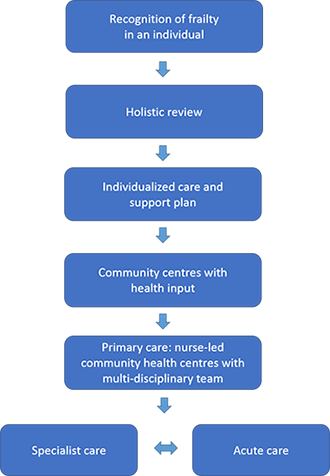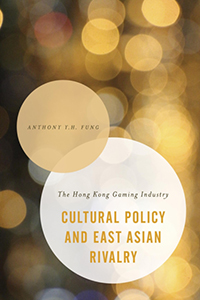| |
 |
|
|
|
| |
|
Research Initiative on COVID-19 and NIDs
|
 The outbreak of the COVID-19 pandemic has highlighted numerous political, economic, and social-psychological problems that affect individuals and society, and has drawn global and public attention to medical, epidemiological, behavioural, and social science research. The outbreak of the COVID-19 pandemic has highlighted numerous political, economic, and social-psychological problems that affect individuals and society, and has drawn global and public attention to medical, epidemiological, behavioural, and social science research.
In view of the tremendous and continuing challenges from the pandemic and from possible future novel infectious diseases (NIDs), Policy Research @ HKIAPS has initiated the Research Initiative on COVID-19 and NIDs to bring together various diverse research efforts on COVID-19 at CUHK that can inform the development of policies. The results of up-to-date and cutting-edge interdisciplinary research on COVID-19 grounded on empirical scientific evidence are shared, compiled, and integrated through the discussion and exchange of data and ideas.
As of 1 September 2020, 47 researchers from six Faculties, namely the Arts, Business Administration, Education, Law, Medicine, and Social Science, have joined the Initiative as members. Two brainstorming sessions were arranged among members to discuss possible collaborations and future activities. Members shared their research projects on the following research themes:
● Prediction, Preparedness, and Responses to Pandemic
● Public Space, Environmental Design, and Sustainability
● Challenges and Opportunities for Economic Development and Job Security
● The New Normal of Work/Study, Leisure, and Consumption Patterns
● Risk Society and Socio-political Management
● Communication, Interpersonal-intergroup Relations, and Well-being
In line with the vision for research collaboration, the Initiative has designed and is conducting various activities to facilitate the exchange of research ideas, dissemination of research outputs, and engagement in public policies.
The Initiative has established an e-portal containing a compilation of global resources and references related to COVID-19. The information is categorized into several clusters: Academics and Think-tanks, Business and Industry, IGOs and INGOs, and Media. The e-portal is updated weekly. These references and resources are compiled from newsletter, podcast, database, portal, map visualization, and other formats, and cover regular data updates, news summaries and policy briefings, commentaries and opinion pieces, articles and journals across different continents and disciplines. All of these references and resources help to generate research discussions that can support further research explorations and collaborations as well as enhance members’ understanding of the latest developments in the field.
The Initiative not only fosters synergy among researchers but also facilitates public engagement. Since August 2020, the Initiative has launched the “COVID-19 Webinar Series” to disseminate members’ research output to the general public. So far, the Initiative has organized three webinars, namely Bioethical Issues Arising from the COVID-19 Pandemic, Individual and Policy Responses to COVID-19: Local and Global Perspectives, and What Factors Caused the Spread of COVID-19 among the Provincial Regions in China?. The Initiative will continue to organize seminars, webinars, and forums to facilitate exchanges of ideas among members, engagement with various stakeholders, and dissemination of public policy implications based on academic research output.
In the future, the Initiative hopes to extend the range of the Initiative’s impact beyond the local and regional areas. We plan to build up international collaboration and strengthen the resource networks of IGOs and INGOs, such as through the international strategic partners of the University, the Association of Pacific Rim Universities (APRU), and the Worldwide Universities Network (WUN).
Policy Research @ HKIAPS is committed to supporting CUHK researchers in linking their cutting-edge research with practices and policies. Through integrated, interactive, and collaborative research efforts, the Initiative expects to build up sustained momentum on expanding the impact of NIDs research so that the world may be more prepared to face new challenges with other NIDs in the future.
We encourage CUHK faculty members to join us in this Research Initiative on COVID-19 and NIDs. Please contact us at policyresearch@cuhk.edu.hk for more details.
|
|
|
|
We are living longer than before, but are we healthier?
|
by Prof. Jean Woo & Dr Ruby Yu
Hong Kong tops the world for longevity, with residents having the longest life expectancy in the world for the third year in a row. People in Hong Kong are living longer than before, but are they healthier and ageing well? Prof. Jean Woo and Dr Ruby Yu from the CUHK Jockey Club Institute of Ageing have been trying to answer this question in their recent research.
Despite significant advances in people’s life expectancy in recent years, a significant percentage of older people still require hospital services and long-term care. In 2016, older people represented only 16% of the population, but they were the main users of care services. Prof. Woo and Dr Yu pointed out that the increased use of health services by those from older age groups may be attributable not only to greater numbers of older people, but also to greater levels of frailty.
Frailty is not a diagnosis, but a clinical state in which an individual is at an increased risk of developing a functional dependency or of dying when exposed to a relatively minor change in their circumstances. Why is frailty important? Older people living with frailty are likely to experience problems, to have difficulty maintaining their ability to live independently, and to be at a high risk of hospitalization due to disability and, subsequently, of institutionalization, which may lead to a poor quality of life and low levels of well-being.
In 2015, Prof. Woo and Dr Yu conducted screening for frailty in the community to estimate the prevalence of frailty among older people aged 65 and older. They found that frailty is very common in Hong Kong, with a prevalence of approximately 12.5% in people older than 65 living in the community. Pre-frailty was even more common for intervention at approximately 50%, suggesting room for reversal of this state. Although frailty is common in the region, there is a lack of information about trends in frailty, physical and/or cognitive impairment, and healthy life expectancies with and without impairment. Hence, the team performed a series of analyses to shed light on these issues and provide policy guidance on plans for future elderly care services in Hong Kong.
In the analysis, the team examined frailty among older people in Hong Kong and compared levels of physical and/or cognitive impairment between two elderly cohorts. The team also provided projections on the number of older people with physical and/or cognitive impairment in Hong Kong, and on the number of nurses and health care workers that would be required to care for them up to the year 2041.
Meanwhile, 90,000 community-dwelling people older than 65 were studied using 12 waves of data on multiple birth cohorts from the Elderly Health Centres of the Department of Health in Hong Kong. In the analysis, the participants were classified into different cohorts according to diverse years. It was found that more recent cohorts at each age have higher levels of frailty than earlier cohorts at the same age, suggesting that older people today are experiencing higher levels of frailty in their later years than that experienced by their parents.
 The findings on trends in frailty and physical and/or cognitive impairment imply that the gains in life expectancy are coming with increases in levels of frailty and impairment, and will lead to a greater need for medical care, social services, and long-term care services. Hence, the team proposed an algorithm for the prevention and management of frailty. The findings on trends in frailty and physical and/or cognitive impairment imply that the gains in life expectancy are coming with increases in levels of frailty and impairment, and will lead to a greater need for medical care, social services, and long-term care services. Hence, the team proposed an algorithm for the prevention and management of frailty.
Frailty should be identified to improve outcomes. Interactions between an older person and health and social care professionals should include an assessment of frailty. Once a person has been identified as frail, a holistic review of medical, functional, psychological, and social needs based on a comprehensive geriatric assessment should be undertaken for care planning. The output of the holistic review should then be used to generate an individualized care plan with details of personal goals and management plans. Some individuals may be managed within the realm of primary care, some may be referred to the care of a specialist, and others may be referred to acute care.
Prof. Woo and Dr Yu pointed out that the growing number of people with complex health and social care needs, particularly frail older people, means that the current health and social care system in Hong Kong is unsustainable and unable to meet current and future needs. There are three major concerns about the current state of care for frail older people. The model of acute care is unsuited to frail older people with complex needs; the time spent caring for frail older people is inversely correlated to the amount of formal training received; and providing care for older people is an endeavour that is lacking in social and professional status.
To solve the dilemma, Prof. Woo and Dr Yu have been working on a community pilot project concerning a model of primary care for older people. This is the Jockey Club Community eHealth Care Project. The project began in 2016, and involves 20 community centres in all three regions of Hong Kong. An integrated medical and social model of primary care has been adopted in this community pilot project. The team aims to engage older people and NGO centres, empower older people to make effective decisions about their health, and enable the staff of the NGO centres to provide care services in partnership with the health sector.
In terms of service provision and coordination, a brief geriatric assessment is provided to the participants to assess their health status and needs. Interventions are also provided, including tele-care, individualized assessments, and group-based activities that support people-centred and integrated care. An evaluation plan has also been developed to test the effectiveness and acceptability of the pilot model.
Prof. Woo and Dr Yu hope that the model will be adopted as the first step in an NGO-based effort to provide primary care for older people. They also envision the project as contributing to a future in which all people have access to quality health services that meet their complex needs.
|
|
|
|
Hong Kong’s game industry and cultural policy
|
by Prof. Anthony Y. H. Fung
 Prof. Fung, Co-Director of the HKIAPS, has been continually concerned about the market situation, challenges, and competition surrounding Hong Kong’s creative industries, especially the game industry. Hong Kong was one of the earliest cities in the Chinese region to develop online games, and has been well known for its creative industries; however, Hong Kong’s creative industries are now lacking in momentum, and the industry itself is facing competition from mainland China and other parts of East Asia. In his upcoming book, Cultural Policy and East Asian Rivalry: The Hong Kong Gaming Industry, he outlines the keen competition from mainland China and other parts of East Asia that the Hong Kong game industry must now address.
Prof. Fung, Co-Director of the HKIAPS, has been continually concerned about the market situation, challenges, and competition surrounding Hong Kong’s creative industries, especially the game industry. Hong Kong was one of the earliest cities in the Chinese region to develop online games, and has been well known for its creative industries; however, Hong Kong’s creative industries are now lacking in momentum, and the industry itself is facing competition from mainland China and other parts of East Asia. In his upcoming book, Cultural Policy and East Asian Rivalry: The Hong Kong Gaming Industry, he outlines the keen competition from mainland China and other parts of East Asia that the Hong Kong game industry must now address.
Cultural policy is thought to be a major force in shaping competition and markets in creative industries. Prof. Fung’s main argument is that, as a typical creative industry in Hong Kong, the game industry is no longer able to compete with other players in the region because of a general lack of cultural policy in Hong Kong.
After giving a general introduction to creative industries in Hong Kong, Prof. Fung points out that the game industry has become one of the largest sectors in Hong Kong’s creative industries. However, given keen competition in mainland China and other parts of East Asia, Hong Kong’s game industry is facing a bottleneck in development. The absence of a comprehensive cultural policy in Hong Kong to drive research and development, to promote the development of distribution channels and retail markets, and to spur the industry’s entry into the China market is also causing Hong Kong to lag behind other competitors in the region.
Prof. Fung then uses the cases of China and other major East Asian countries to explain how cultural policies can drive the growth of cultural industries in the region and promote exports. In mainland China, the market is in fact carefully planned and maintained by a set of very complicated cultural policies. At this point, a case study of mainland China’s game industry will naturally serve as a model for Hong Kong’s game industry. The markets and cultural policies of other regions are also discussed to illustrate how discourses on cultural policies do or do not influence other countries.
The global creative cluster is specifically introduced in this book, as the cluster approach is believed to be the most interventionist approach in the realm of cultural policy. Evidence from the Japanese and Chinese game markets shows that the clustering of industry practitioners played a significant role in helping the industry in those countries to flourish. Examples worldwide prove that powerful networks and exchange platforms are essential for the game industry to grow.
In conclusion, Prof. Fung suggests that instead of seeing Asia’s creative industries as rivals, Hong Kong should seek a more collaborative approach. That is, a cultural policy that enhances Hong Kong’s creative industries to partner with the creative industries of mainland China or Korea is urgently needed. This will require a completely new paradigm of thinking about Hong Kong’s role in the region.
|
|
|
| |
|
| |
|
|
|
|
|
|
 |
|
|
|